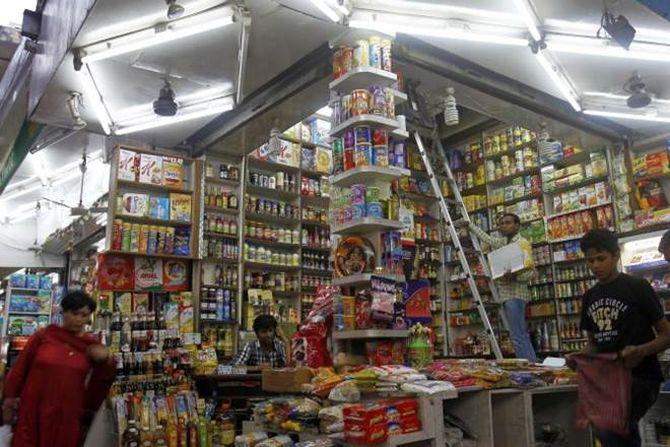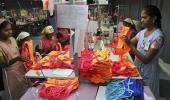Industry officials say the crunch has not only affected manufacturing of edibles but even of items like nozzle pumps and other goods used in packaging.

While the Centre has kept the major ports and the airports in the country open to allow freight movement in times of the ongoing lockdown, limited evacuation of imported raw material to factories is creating production hurdles for FMCG companies.
All FMCG firms are already reeling under the pressure of manpower curbs at the plants and shortage of trucks to ferry goods.
On top of it, they now have to deal with raw material scarcity.
ITC has been focussing solely on the production and supply of essential items like foodstuff and sanitisation products after scaling down operations.
Its factories have stopped making cigarettes for the time being.
HUL’s sales have dropped to 40 per cent of the usual daily run rate, after scaling up from low single digits in the last week of March.
HUL’s factories are operating at about 40 per cent of the required output.
"Due to restricted capacity at the main ports in India, both for sea and air freight, we are facing a scarcity of import of material for which a locally-produced alternative is extremely difficult to find.
"We are working closely with the government and local bodies to try to ensure continued and uninterrupted supply of essential goods to the people of our nation in these difficult times,” an HUL spokesperson told Business Standard.
According to industry officials, the scarcity of raw materials has not only affected manufacturing of edibles but even of items like nozzle pumps, and other goods used in packaging.
“We are facing issues at ports, which is impeding the smooth movement of both imported raw material and exportable finished products.
"The clearing of import consignments and their movement is still sluggish,” Dabur India Ltd’s executive director–operations, Shahrukh Khan told BS.
According to officials at Shyama Prasad Mukherjee Port, better known as the Kolkata Port Trust (KoPT), the current cargo-handling capacity stands at about 70 per cent and items like pharmaceuticals, edible oil, petroleum and LPG, coking coal and raw material for sanitisers are being prioritised for clearances.
Sources said the situation across the country is nearly the same and because of the prioritisation and limited workforce, some shipment clearances and unloading are getting delayed.
“The primary issue is that of manpower availability.
"The handling agents are trying to arrange for transporting the workers and maintain social distancing norms but at times, the availability of vehicles is limited,” an official at KoPT told Business Standard.
Around 90 per cent of India’s trade in terms of volume and 70 per cent in terms of value is routed via maritime routes.
CARE Ratings said that volume in the ports declined to 63.17 million tonnes of cargo in March 2020 from 64.47 million tonnes during the corresponding month of previous year.
However, given the scarcity, while Dabur is looking at import substitution, companies dependent on global sourcing like HUL are getting affected.
“We are aggressively looking at import substitution,” Khan added.
Queries sent to Nestle, Marico and Godrej Consumer Products remained unanswered.
On the other hand, port officials are worried that longer unloading times may soon lead to congesting the port warehouses.
“However, with the revised guidelines in place, the situation is expected to improve as more plants become operational and more trucks can be loaded”, the KoPT official added.
Under the revised guidelines from the union home ministry, plants and factories in rural zones are allowed to function with limited workforce and under stringent working conditions such as capped manpower and proper sanitisation.
Photograph: PTI Photo












 © 2025
© 2025